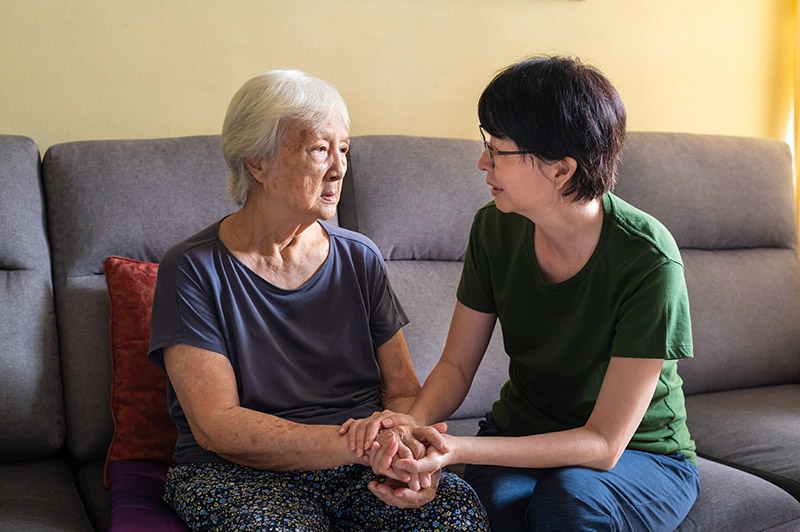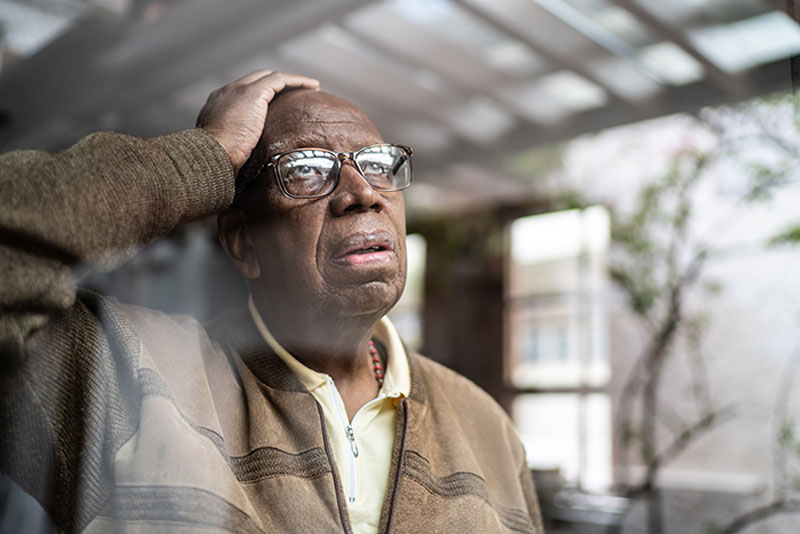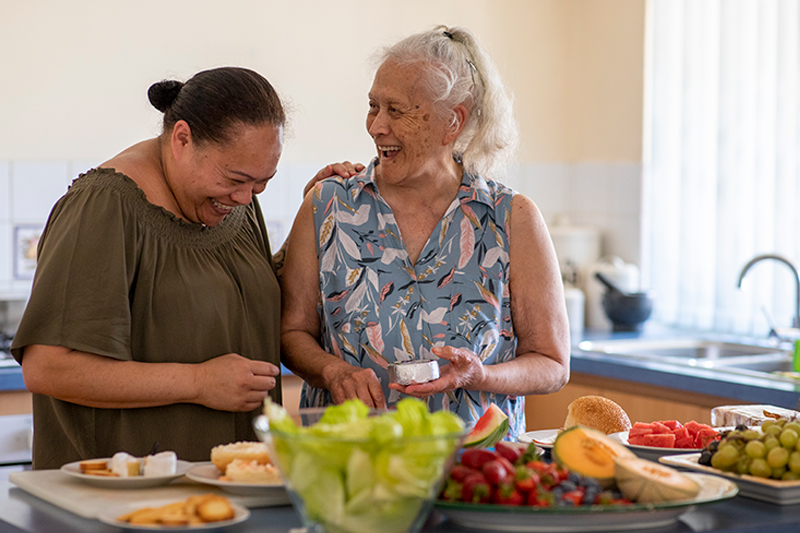
5 Surprising Things That Make Alzheimer’s Worse Alzheimer’s disease and other forms of dementia are incredibly challenging on their own. Effectively managing dementia requires a toolbox of tactics that is ever-evolving, as the symptoms and difficulties of the disease change and progress over time. Yet even while employing the most cutting-edge dementia techniques, there’s more required to help someone you love: understanding that there are certain things that make Alzheimer’s worse, and knowing how to manage those as well. If you’re caring for someone with the disease, you need to be aware of the following potential complications and contact the person’s doctor for recommendations where applicable: Hearing impairment. Untreated age-related hearing loss is linked to a rapid decline in memory. Even something as simple and easily treated as wax buildup in the ears can worsen the effects of Alzheimer’s. Too much sugar. A sugar craving is quite common in those with dementia, but can lead to increased irritability and agitation.…

Ease Life With Alzheimer’s: Create a Dementia Care Routine Have you ever awoken from a dream feeling completely disoriented? The dream seemed so real, and it takes a few minutes to regain your bearings. For someone with dementia, this disorientation is part of everyday life. Our goal in caring for someone with dementia is to help provide as much stability as possible, and one of the simplest ways to accomplish this is to create a dementia care routine. How Can a Dementia Care Routine Help? Short-term memory loss makes it challenging for someone with dementia to learn and remember new things. A familiar routine helps build self-confidence, reinforce a feeling of independence, and minimize anxiety. To create the most comfortable routine for a family member with dementia, try the following: Follow their lead. Keep in place any routines the older adult already has established: a morning shower before breakfast, meals at the same seat at the table as always, an afternoon TV program, a walk after dinner, etc. Modify as needed. Over time, as the disease…

How to Help Overcome Dementia Restlessness Wandering. Pacing. Fidgeting. When you begin to notice these signs of dementia restlessness in someone you love, it’s time for you to take action before they intensify to agitation, aggression, or leaving the home. But figuring out why the older adult is feeling uneasy is sometimes half the battle. For starters, consider the following questions: Could the senior be hungry or thirsty? Have they been sedentary too long and need to move? Is anything causing the person physical discomfort or pain? Are there too many distractions in the room? Are there visitors who could be producing distress or anxiety? Might they need to use the restroom? Are they bored? If you’re uncertain, try fulfilling potential physical needs first. Ask if they would be interested in a snack or something to drink. Watch for nonverbal clues which could indicate discomfort, and contact the physician right away for direction if you suspect the individual is in pain. If the issue seems to be emotionally driven, try…

The Perfect New Year’s Resolutions if You’re Caring for Someone With Alzheimer’s People around you may be resolving to lose ten pounds, exercise more, and eat healthier, but if you’re caring for someone with Alzheimer’s, just getting through the day may be ambitious enough. The very thought of aiming to improve upon any area of your life in this unsettling time may be overwhelming. At Amy’s Helping Hands, our Windsor, Ontario elder care team would like to offer you a bit of encouragement. We know the work you are doing can be both rewarding and frustrating, and we are here to support you in any way we can. To start, we have gathered some resolutions exclusively for Alzheimer’s caregivers that will actually help make your journey a little bit easier. What Resolutions Are Good for a Dementia Caregiver? Take a deep breath and a few minutes to consider the following: Set aside time for self-care. We know this might be not as easy as it sounds. But taking time for yourself is crucial to both your wellbeing and that of the individual you are caring for. It does…

3 Ideas for Creative Alzheimer’s Activities Utilizing Food If there’s one thing that connects us all, it’s food! Think about how many precious memories have been made over the years that included food at the center of them all: holiday meals, birthday parties, wedding celebrations. Even ordinary days involve routines that become ingrained in us around food, from that first aromatic cup of coffee in the morning to a shared bowl of buttery popcorn with family while watching a show on the television. It’s only natural that some of the most effective and creative Alzheimer’s activities are centered on food. Food-related activities are a great way to connect with someone with dementia, while engaging all of the senses. Here are some activities you can try to help spark memories and create new ones. Decorating. Frost cupcakes while reminiscing about the treats Mom would prepare for school birthday parties. Roll out cookie dough and use cookie cutters and sprinkles to make them specific to an upcoming holiday as you discuss holidays past. Preparing.…

Downsizing and Dementia: Follow These Guidelines for a Smoother Transition You’ve decided the family home is just too much for your parents to manage. A small house is for sale just down the road from you that is ideal: a beautiful flower garden in the front yard, a bright, cheerful kitchen, and no stairs to navigate. Now it’s time to start the downsizing process. The only problem? Mom has dementia. And while the combination of downsizing and dementia isn’t easy to navigate, there are steps you can take to help. Change for a loved one with dementia can be extremely challenging. Leaving the familiarity of home and moving into a brand new one can enhance feelings of agitation and anxiety. Try these approaches to help ease the transition. Go slow. You may be inclined to make the process as quick as possible – like tearing off a Band-Aid. However, a better approach in this situation is taking time to discuss the upcoming changes with the senior, one step at a time. Keep a calm and consistent demeanor, and empower the person to maintain as much control…




















